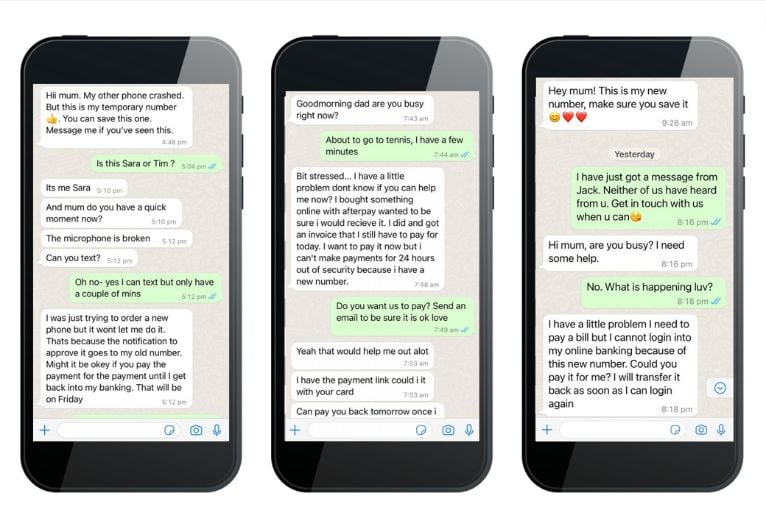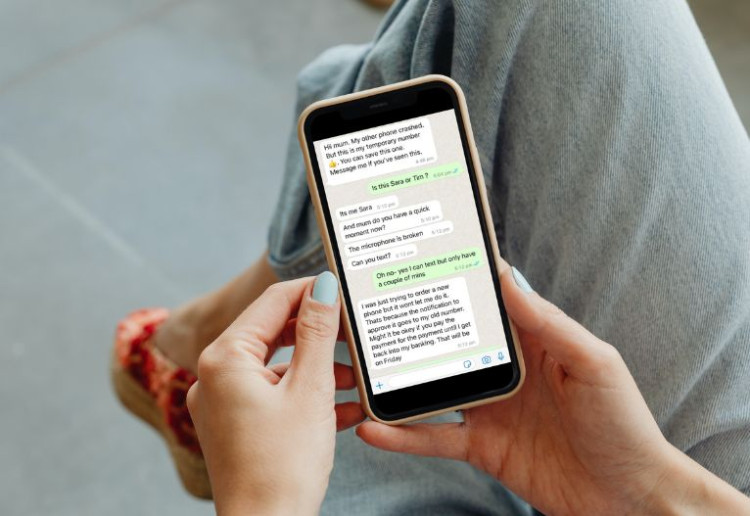A scam that pulls at the emotional heartstrings of mums has already defrauded Australians of $2.6 million in just seven months.
There’s been a spike in the number of so-called ‘Hi Mum’ scams, where victims are targeted by fraudsters posing as family members or friends.
Scamwatch has revealed more than 1,150 Australians have fallen victim to the Hi Mum scams this year alone, with the majority being reported in June and July 2022.
It’s prompted a warning from the Australian consumer watchdog for mums to be on the lookout for suspicious phone messages, claiming to be a family member. Contact is often made through WhatsApp, with the scammer posing as a family member or friend.
The scammer then claims they’ve lost or damaged their phone, and they’re making contact from their new number. After some texts back and forth, the scammer will then ask for personal information or money to help pay an urgent bill, or to replace their phone.

Some messages simple say ‘it’s me’, while some scammers have contact information and will use the real name of the person they’re impersonating, making the whole situation even more believable.
“We have seen an explosion in the number of ‘Hi Mum’ scams in the past couple of months, and so we are warning Australians to be very wary of messages from unknown numbers claiming to be from their children, parents, relatives or friends,” ACCC Deputy Chair Delia Rickard said.
“Scammers will stop at nothing to get your personal details or money and this particular scam is designed to pull your heartstrings.”
“It’s important to stop and think if you get a message, especially on WhatsApp, because chances are it’s not your family member or friend – it’s a scammer.”
If you think you’re being targeted by a scammer, the ACCC says you need to independently verify the contact.
“If you’re contacted by someone claiming to be your son, daughter, relative or friend, start by calling them on the number already stored in your phone to confirm if it’s no longer in use. If they pick up – you know it’s a scam,” Ms Rickard said.
“If unable to make contact, you should try a secondary contact method to verify who you’re speaking to. If you still can’t contact your family member or friend, consider asking a personal question a scammer couldn’t know the answer to, so you know the person you are speaking to is who they say they are.”
“Above all, never send money without being absolutely sure who you are sending it to,” Ms Rickard said.
Do you know anyone who has fallen victim to this scam? Let us know in the comments below.




















10:20 am
8:31 pm
3:47 pm
9:07 pm
10:03 am
9:09 pm
7:07 pm
6:07 pm
5:55 pm
11:32 am
1:58 pm
6:04 am
2:26 pm
12:53 pm
3:35 pm
2:21 pm
12:18 pm
12:09 pm
11:31 am
9:50 am
- 1
- 2
- »
Post a commentTo post a review/comment please join us or login so we can allocate your points.